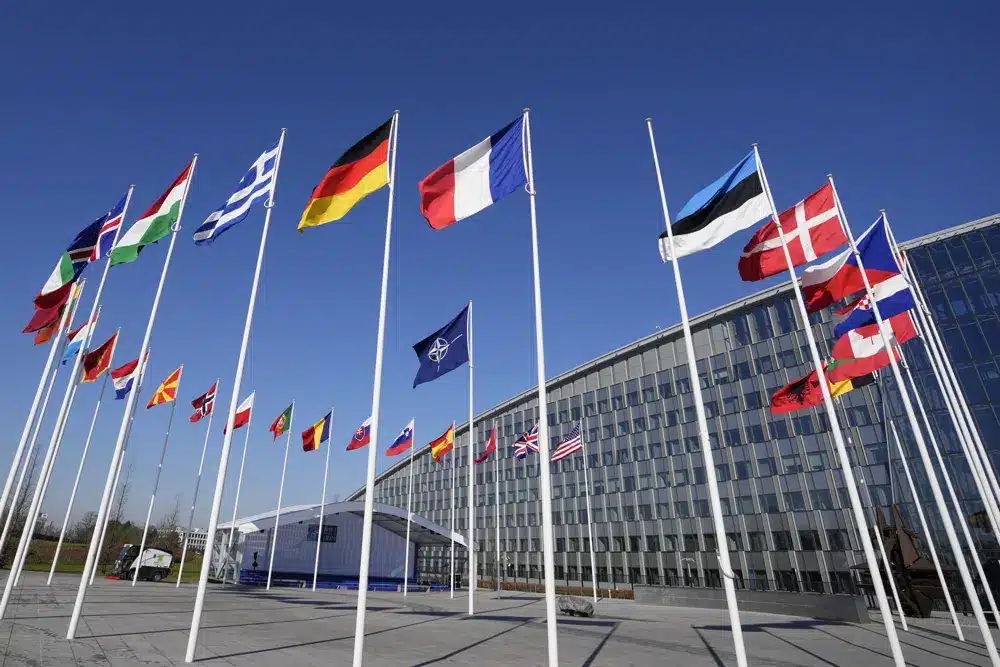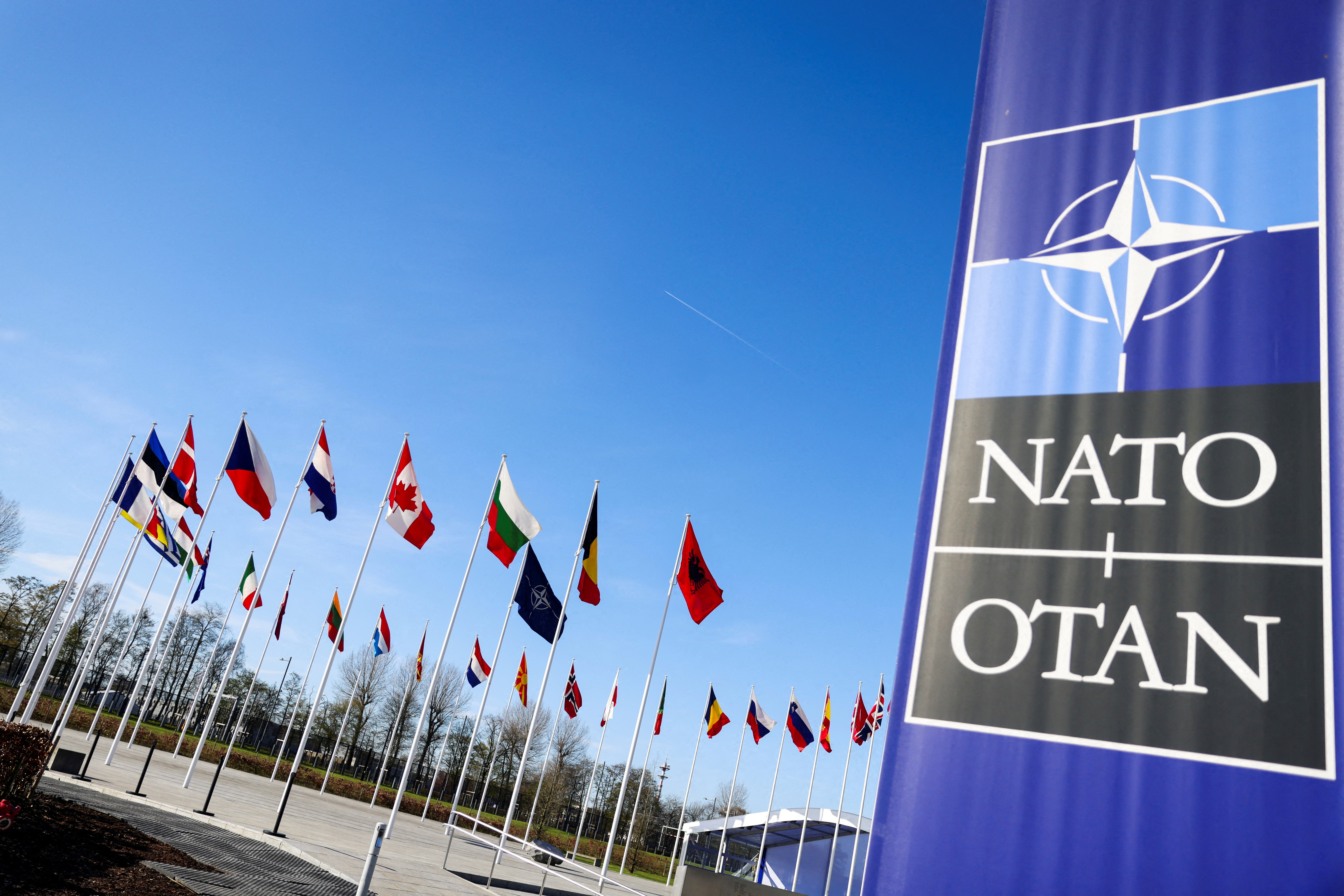Politics
Soccer Player Paulinho Won’t Let Intolerance Of His Afro-Brazilian Religion Stop His Faith

LAGOA SANTA, Brazil — When the Brazilian football player Paulinho scored a goal at the Tokyo Olympics, he celebrated by pointing an imaginary arrow at the glowing cameras as a tribute to a deity in his persecuted Afro-Brazilian religion and a shot at religious intolerance.
Subsequently, he lost over 10,000 social media followers for his public tribute to Oxóssi, a godly archer who uses his bow to stalk and feed the hungry.
He claims he progressively gained new fans in his soccer-obsessed South American nation by representing his Afro-Brazilian religion, Candomblé, and challenging religious intolerance. His religion has been subject to a rising tide of persecution, sometimes attributed to the rapid spread of evangelical Christianity in Brazil.
“Some competitors inquire about my religion, wanting to know what it is like… They always heed when I speak. But it’s still a small minority in football’, the 23-year-old Atletico Mineiro player said in an interview at his residence outside of Belo Horizonte in Brazil’s southeast. “I…get messages about how I express myself about the religion, some from people who also believe in the faith but aren’t too outspoken. And it’s great to feel that they appreciate what I do.”
In Brazil, only a small minority practice Candomblé. In recent years, however, reports of religious intolerance against them have increased, particularly at the hands of members of Pentecostal and neo-Pentecostal congregations, whose mission is to convert unbelievers.
Although he was not as involved with Candomblé then, he felt targeted when he began his professional career in 2017 with the prominent club Vasco da Gama.
Some members of African-influenced religions have been subjected to verbal abuse, discrimination, and even the devastation of their temples and forced eviction from their neighborhoods.
Growing up in Rio de Janeiro, Paulinho experienced religious discrimination like his mother and grandmother before him.
His mother, Ana Christina Sampaio, recalled feeling insulted when other players’ parents implied that her son’s success on the football pitch was due to Afro-Brazilian sacrificial rituals.
She stated, “They disregarded Paulinho’s abilities and efforts.” Certainly, there is religious intolerance, but in Brazil, it appears to be religious bigotry against Candomblé.
As Catholic Portuguese colonists carried enslaved Africans to Brazil, these men and women merged their traditional religions with Catholicism. These religions are practiced by less than 1% of Brazil’s 210 million inhabitants.
Academics and advocates for religious freedom assert that neo-Pentecostal congregations sometimes demonize Afro-Brazilian religions. In uncommon instances, pastors have been found to explicitly direct radicalized evangelicals to commit acts of violence.
Sociologist Reginaldo Prandi stated, “Candomblé has always been persecuted; the only place in Brazil where its adherents are the majority is during Carnival.” He made note of the well-known traditional samba school competition in which references to Candomblé deities, or orixas, have been a constant for decades.
In recent years, samba schools have pleaded for Afro-Brazilians to be accepted and religious violence to cease.
“Prejudice cannot invalidate his football abilities. Everyone will forget about his religion if he proves to be an exceptional athlete. This is Brazil’s custom, said Prandi. However, it will be one of the first things people say when he performs poorly.
Paulinho stated that the prejudice he faced prompted him to abandon Brazil and play football in Europe. In 2018, he transferred to the German club Bayer Leverkusen for $21 million. In four years, he participated in 79 matches and scored nine goals. According to him, his faith was never an issue there.
Paulinho currently plays for the Brazilian club Atlético Mineiro, which in the 1980s featured some of the country’s first outspokenly evangelical soccer players. He still hopes to play professionally in England or Spain.
In Brazil, however, he has become an influential advocate for a marginalized religious minority.
He stated, “People recognize that I have a deeper understanding and knowledge of our religion.” Looking back… Candomblé has been present throughout all phases, illuminating the path. And now I can speak with more assurance.”
Earlier this year, Paulinho displayed his Candomblé pride during a game, provoking his detractors and bolstering his supporters. After scoring, he removed his shirt to reveal a new tattoo. It read “se” — or “energy” in Yoruba — or, as Axé is known to Brazilians, Axé, which is essential to Candomblé.
A supporter of Atletico Mineiro posted on Paulinho’s Instagram, “Get out of our club, macumbeiro!” shortly after. This term is sometimes used derisively to refer to Macumba members, defined as “a polytheistic religion of African origin… practiced mainly by Black Brazilians in urban areas.”
In the same post, another club supporter said: “You care more about candomblé and politics than football, you shouldn’t be here.”
Paulinho has also been targeted by far-right activists aligned with former Brazilian President Jair Bolsonaro, who had a significant evangelical support base. Paulinho was among the few active soccer players to publicly endorse President Luiz Inácio Lula da Silva in the 2022 elections.
Growing up in Rio de Janeiro, Paulinho experienced religious discrimination like his mother and grandmother.
Since the 1960s, the acceptance of Candomblé among Brazil’s middle class has been facilitated by the support of Brazilian performers such as Grammy-winner Caetano Veloso.
“At that time, the world was in search of other civilizations. Europeans pursued Buddhism, while the Beatles travelled to India,’ said Prandi. “Brazilians were not required to travel.
“We had this very dramatic and theatrical religion in the state of Bahia, which originated with the Africans,” he continued. It was then that all intellectuals became involved; it was our counterculture.
Prandi stated nonetheless that persecution of Candomblé continued.
“Now Brazil has a very conservative movement, which led to the election of Bolsonaro, and people like Paulinho are viewed as a threat because he is a popular football player,” he said.
Others are following in Paulinho’s footsteps. After scoring the game-winning goal in the Brazilian Cup final against Flamengo on Sunday, Sao Paulo FC midfielder Rodrigo Nestor revealed on national television that he is a Candomblé follower.
Nestor told TV Globo after the match, “My orishas, my mother Ians, were with me.” He referred to the Candomblé deity of wind, lightning, magic, and fire.
Paulinho aims to again represent Brazil at the Paris Olympics next year. He maintains confidence in his abilities and religious pride. Before each contest, he prays to the divine beings for guidance. In addition, his mother blesses him with water and basil leaves to ward off negative vibrations.
“My faith has taught me to be patient,” said Paulinho. “This is also a wonderful quality of my orisha: Oxóssi only has one arrow, so he must be accurate. He must be patient.
“In some games, I have only one clean shot. I could get it right; I could get it wrong,” he added. “However, regardless of the outcome, I am confident that the discipline I’ve gained from Candomblé will allow me to find other opportunities if I remain resilient.”
SOURCE – (AP)
Celebrity
Bernice Johnson Reagon, Whose Powerful Voice Helped Propel The Civil Rights Movement, Has Died

Nashville, Tennessee – Bernice Johnson Reagon, a musician and scholar who utilised her rich, powerful contralto voice to support the American Civil Rights Movement and global human rights campaigns, died on July 16, according to her daughter’s social media post. She was 81.
Reagon was best known as the founder of Sweet Honey in the Rock, an internationally recognized African American female cappella group that she managed from 1973 until her retirement in 2004. The Grammy-nominated group’s purpose has been to educate, empower, and entertain. They sing songs from various genres, including spirituals, children’s music, blues, and jazz. Some of their original compositions pay tribute to American civil rights leaders and foreign liberation movements, such as the struggle against apartheid in South Africa.
Bernice Johnson Reagon, Whose Powerful Voice Helped Propel The Civil Rights Movement, Has Died
“She was incredible,” said Tammy Kernodle, a prominent professor of music at Miami University with a focus on African American music. She referred to Reagon as someone “whose divine energy, intellect, and talent all intersect in such a way to initiate change in the atmosphere.”
According to an obituary posted on social media by her daughter, musician Toshi Reagon, Reagon’s musical activism began in the early 1960s when she worked as a field secretary for the Student Nonviolent Coordinating Committee and became an initial member of the Freedom Singers. In 2010, the trio reassembled and was joined by Toshi Reagon to play for then-President Barack Obama in a White House performance series televised nationally on public television.
Reagon was born in 1942 in Dougherty County, Georgia, outside of Albany. In the early 1960s, he attended music workshops at Tennessee’s Highlander Folk School, an activist training ground. At an anniversary celebration in 2007, Reagon explained how the institution helped her recognize her musical history as unique.
“From the time I was born, we were always singing,” Reagon told me. “When you’re in a culture and, quote, ‘doing what comes naturally to you,’ you don’t notice it. I believe my work as a cultural scholar, singer, and composer would have been very different if someone had not drawn my attention to the people who need songs to stay alive, to keep themselves together, or to boost the energy in a movement.”
Reagon was arrested and dismissed from Albany State College after participating in a civil rights march. She eventually graduated from Spellman College. While a graduate student of history at Howard University and the vocal director of the D.C. Black Repertory Company, she founded Sweet Honey in the Rock.
In 1965, Reagon recorded her debut solo album, “Folk Songs: The South,” for Folkways Records. She joined Atlanta’s Harambee Singers as a founding member in 1966.
According to the Smithsonian, Reagon began working with the institution in 1969 when she was asked to organize and manage a 1970 festival program called Black Music Through the Languages of the New World. She went on to curate the African Diaspora Program and establish and lead the Program in Black American Culture at the National Museum of American History, where she ultimately became curator emeritus. She produced and played on many Smithsonian Folkways recordings.
Reagon was a distinguished professor of history at American University in Washington for a decade, commencing in 1993 and ending as a professor emerita.
According to Kernodle, we think that music has always been a component of civil rights activity, but it was people like Reagon who made music “part of the strategy of nonviolent resistance.” They brought those songs and practices from within the church to the streets and jail cells. And they popularised such songs.”
Bernice Johnson Reagon, Whose Powerful Voice Helped Propel The Civil Rights Movement, Has Died
“What she also did that was very important was that she historicised how that music functioned in the civil rights movement,” according to Kernodle. “Her dissertation was one of the first real studies of civil rights music.”
Reagon won two George F. Peabody Awards, including one for her role as lead scholar, conceptual producer, and host of the Smithsonian Institution and National Public Radio series “Wade in the Water: African American Sacred Music Traditions.”
She has received the Charles E. Frankel Prize and Presidential Medal for distinguished contributions to public awareness of the humanities, a MacArthur Fellows Program award, and the Martin Luther King Jr. Centre for Nonviolent Social Change’s Trumpet of Conscience Award.
SOURCE | AP
World
Too Soon For Comedy? After Attempted Assassination Of Trump, US Politics Feel Anything But Funny

Political jokes: is it too soon?
Many quarters responded with a loud yes at midweek, days after an assassination attempt on Republican former President Donald Trump shook the nation over decades of political violence in the United States.
Several late-night shows that rely on political humor instantly modified their plans, with Comedy Central’s “The Daily Show” canceling its Monday show and intending to broadcast from the Republican National Convention in Milwaukee this week. Its host, Jon Stewart, and his guests gave sad monologues.
By Tuesday, the comic rock duo Tenacious D, comprised of Jack Black and Kyle Gass, had canceled the remainder of their global tour “and all future creative plans” after Gass proclaimed onstage his birthday wish: “Don’t miss next time.” Gass apologized.
Too Soon For Comedy? After Attempted Assassination Of Trump, US Politics Feel Anything But Funny
Democratic President Joe Biden, no stranger to criticizing Trump, contacted his wounded competitor, paused his political advertisements and messaging, and urged the country to “cool” the rhetoric.
So, if comedy is tragedy plus time, when is joking acceptable again? And who gives a thumbs up, given that the shooter who targeted Trump also killed former fire chief Corey Comperatore while protecting his family?
The attempted assassination on Saturday, or any of the bloodshed that has afflicted the United States since its inception, is not funny. Trump was smacked in the ear while speaking to rallygoers in Pennsylvania. A Trump supporter and the gunman were dead, while two onlookers were injured. The attack sparked severe concerns about security shortcomings. It was the most recent example of political violence in America, where attacks on politicians date back to at least 1798 when two legislators from opposite parties brawled in the United States House.
Other examples abound in history texts, but the list from this century is particularly striking. Former Arizona Representative Gabby Giffords, D, was shot in the head in 2011. Republican Rep. Steve Scalise of Louisiana, the current House majority leader, was shot and badly injured in 2017. On January 6, 2021, a mob of Trump supporters invaded the US Capitol, preventing Congress from certifying Biden’s election. Paul Pelosi was bludgeoned at his home in 2022 by a guy looking for his wife, former House Speaker Nancy Pelosi.
In addition to that, unwavering fears about Biden’s fitness for office following his catastrophic debate performance, Trump’s conviction on 34 felony counts, and American politics in 2024 appear anything but hilarious.
However, political comedy is as old as politics and administration.
It softens the impact of democratic decisions and is a powerful tool for politicians aiming to alleviate or increase concerns about themselves or their opponents. And in recent years, Trump has been the focus of more jokes than anyone else. According to a 2020 study by George Mason University’s Center for Media and Public Affairs, late-night hosts made 97% of their jokes about Trump.
“It’s never too soon, unless it’s not funny,” Alonzo Bodden, a 31-year-old stand-up comedian, said in a phone interview Wednesday. He is not a Trump supporter but stated that comedians “will always make it funny no matter what happens.” That is what we do. “It is how we communicate.”
“In this case, Donald Trump is such a character and the fact that he wasn’t killed, the jokes started immediately,” said Bodden. “And I don’t believe he minds. He’s one of those persons who is always happy to be mentioned.”
Humor humanizes large figures.
Perhaps most effectively, political humor can make arrogant leaders appear more human or at least self-conscious.
Consider “covfefe,” Trump’s strange middle-of-the-night tweet in 2017 that went viral, prompting Jimmy Kimmel to despair that he’ll never write something funnier. “Make the Pie Higher,” a poem by late Washington Post cartoonist Richard Thompson, was composed solely of President George W. Bush’s botched words and was published for his inauguration in 2001.
“It is a very complicated economic point I was making there,” Bush said with a smirk at the Radio and Television Correspondents Dinner a few months later. “Believe me, what this country needs is taller pie.”
Before the debate, Biden attempted to use humor to bring the age issue to the forefront, but it became evident that the concern was more about his cognitive ability. “I know I’m 198 years old,” Biden declared, to wild laughter and clapping.
Too Soon For Comedy? After Attempted Assassination Of Trump, US Politics Feel Anything But Funny
Humor is such an effective campaign tactic that candidates flock to guest appearances on late-night shows, which have risen in political prominence. However, following the assassination, a pause settled over everything, as indicated by Stewart’s serious address on Monday.
“None of us knows what’s going to happen next other than there will be another tragedy in this country, self-inflicted by us to us, and then we’ll have this feeling again,” Stewart told the crowd.
“Though I could just as easily start the show moaning on the floor,” he laughed, “because how many times do we need to learn the lesson that violence has no role in our politics?”
As is customary for social media, it was acting more freely. “I think it’s ironic that Trump almost died from a gun today because he was too far right-leaning,” comedian Drew Lynch remarked on YouTube. “Alright. That’s all I have. I believe my neighbors might be listening.”
SOURCE | AP
World
To Counter China, NATO And Its Asian Partners Are Moving Closer Under US Leadership

Washington — In the third year of the war in Ukraine, NATO plans to strengthen ties with its four Indo-Pacific partners, who, while not members of the military alliance, are gaining prominence as Russia and China forge closer ties to counter the United States and the two Koreas’ support for opposing sides in Europe.
For the third consecutive year, the leaders of New Zealand, Japan, and South Korea will attend the NATO summit, which begins Tuesday in Washington, D.C., while Australia will send its deputy prime minister. China will watch the meeting intently, concerned about the alliance’s expanding interest beyond Europe and the Western Hemisphere.
“Partners in Europe increasingly see challenges halfway around the world in Asia as relevant to them, just as partners in Asia see challenges halfway around the world in Europe,” Secretary of State Antony Blinken told the Brookings Institution last week.

NATO | Reuters Image
To Counter China, NATO And Its Asian Partners Are Moving Closer Under US Leadership
America’s top diplomat stated that the US has been striving to tear down barriers between European alliances, Asian coalitions, and other global allies. “That’s part of the new landscape, the new geometry that we’ve put in place.”
As competition between the United States and China heats up, countries with similar security concerns are forging relations. Washington is attempting to limit Beijing’s ambition to challenge the US-led world order, which the Chinese government dismisses as a Cold War mindset aimed at restraining China’s inevitable growth.
On Monday, Beijing reacted strongly to unsubstantiated rumors that NATO and its four Indo-Pacific partners are preparing to release a document outlining their partnership and capabilities to respond to cyberattacks and disinformation.
Lin Jian, a Chinese foreign ministry spokeswoman, accused NATO of “breaching its boundary, expanding its mandate, going beyond its defense zone, and stoking confrontation.”
The conflict in Ukraine, which has put the West against Russia and its allies, has strengthened the case for greater collaboration among the United States, Europe, and its Asian allies. “Ukraine of today may become East Asia of tomorrow,” Japanese Prime Minister Fumio Kishida told the United States Congress in April.
The United States and South Korea accused Pyongyang of supplying Russia with ammunition, while Russian President Vladimir Putin paid a visit to North Korea last month and signed an agreement with leader Kim Jong Un calling for mutual military assistance.
South Korea and Japan, meanwhile, are deploying military equipment and humanitarian help to Ukraine. The US also claims China is sending Russia with machine tools, microelectronics, and other technology that will allow it to manufacture weapons for use against Ukraine.
South Korean President Yoon Suk Yeol will travel to Washington with “a strong message regarding the military cooperation between Russia and North Korea and discuss ways to enhance cooperation among NATO allies and Indo-Pacific partners,” his principal deputy national security adviser, Kim Tae-hyo, told reporters Friday.
New Zealand Prime Minister Christopher Luxon stated that discussions will “focus on our collective efforts to support the rules-based system.”
According to Mirna Galic, senior policy analyst on China and East Asia at the US Institute of Peace, the cooperation allows NATO to coordinate with the four partners on topics of shared concern rather than becoming a direct player in the Indo-Pacific. For example, she said in an analysis that they can share intelligence and agree on actions like sanctions and aid delivery, but they do not intervene in military crises outside their borders.
According to Luis Simon, director of Vrije Universiteit Brussel’s Centre for Security Diplomacy and Strategy, the NATO summit will allow the United States and its European and Indo-Pacific partners to counter China, Russia, North Korea, and Iran.
“The fact that the Euro-Atlantic and Indo-Pacific alliances are structured around a clear anchor — U.S. military power — makes them more cohesive and gives them a strategic edge as compared to the sort of interlocking partnerships that bind China, Russia, Iran, and North Korea,” Simon wrote in a commentary last week on War On the Rocks, a defense and foreign affairs website.
Zhu Feng, dean of the School of International Studies at Nanjing University in eastern China, expressed concern over NATO’s eastward swing. Beijing has asked that NATO refrain from interfering in Indo-Pacific security concerns and reconsider China as a strategic adversary.
“NATO should consider China as a positive force for the regional peace and stability and for global security,” Zhu indicated. “We also hope the Ukraine war can end as soon as possible … and we have rejected a return to the triangular relation with Russia and North Korea.”
“In today’s volatile and fragile world, Europe, the U.S. and China should strengthen global and regional cooperation,” according to Zhu.
NATO and China had little confrontation until 2019 when tensions between Beijing and Washington rose. The NATO summit in London mentioned China as a “challenge” that “we need to address together as an alliance.” Two years later, NATO upgraded China to a “systemic challenge” and stated that Beijing was “cooperating militarily with Russia.”

NATO | NPR Image
To Counter China, NATO And Its Asian Partners Are Moving Closer Under US Leadership
Following Russia’s invasion of Ukraine in 2022, leaders from Japan, South Korea, Australia, and New Zealand attended the inaugural NATO summit, where they highlighted China’s geopolitical problems. Beijing accused NATO of “collaborating with the US government for an all-out suppression of China.”
Beijing is concerned that Washington is creating a NATO-style alliance in the Indo-Pacific.
Chinese Senior Col. Cao Yanzhong, a scholar at China’s Institute of War Studies, asked US Defense Secretary Lloyd Austin last month if the US attempted to build an Asian version of NATO through partnerships and alliances. They include a grouping of the United States, Britain, and Australia; another with Australia, India, and Japan; and one with Japan and South Korea.
“What implications do you think the strengthening of the U.S. alliance system in the Asia-Pacific will have on this region’s security and stability?” Cao asked during the Shangri-la Dialogue security meeting in Singapore.
Austin responded that the United States merely collaborates with “like-minded countries with similar values and a common vision of a free and open Indo-Pacific.”
Beijing reached its own decision.
“The real intent of the U.S. Indo-Pacific strategy is to integrate all small circles into a big circle as the Asian version of NATO in order to maintain hegemony as led by the United States,” Chinese Lt. Gen. Jing Jianfeng stated at the meeting.
SOURCE | AP
-
World2 weeks ago
Former President Trump Survives Being Shot at Pennsylvania Rally
-
Tech4 weeks ago
Huawei Launches 5G-A Pioneers Program at MWC Shanghai 2024: Paving the Way for a Connected Future
-
Tech4 weeks ago
ChatGPT Answers Undiscovered Questions and Outperforms Students.
-
Sports4 weeks ago
NBA Draft: Kyle Filipowski Withdraws Unexpectedly From The First Round
-
News4 weeks ago
US Supreme Court Rejects Drug Deal that Protects the Sackler Family
-
Health4 weeks ago
US Health Agency Issues Dengue Virus Infection Warning



















